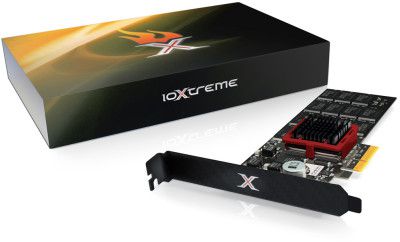Prices are one thing, reliability and density is another. There seems to be a complete detachment from SLC NAND from the consumer market, it's nearly all MLC now. I guess prices need to drop and density increase before SLC takes off, since then it'll be worth the investment considering it costs 3-4 times more. Speed is becoming less of an issue now, the throughput from SSD's is far greater than most Striped RAID arrays, just need to sort out latency now.
NAND reliability doesn't seem to be as major an issue as you or I would think. Even if the NAND began wearing out it would take time before the GB's of spare area would become depleted, and user tools exist that show how many bad sectors have been remapped. To date all the SSD failures I'm personally familiar with (admittedly a small sample) have been abrupt "deaths", not gradual ones. This suggests to me the issue to worry about isn't NAND longevity but something else... controller design and firmware being the two I know of.
That said, a normal HDD carries the same warranty as a reputable brand of SSD. While 5-year warranty HDDs still exist from Seagate and Western Digital they cost twice as much as the 3-year models at the same capacities. Some server models cost even more than that. Between a user paying $300 for a top model WD Raptor or $300 for a 128GB SSD + 2TB hard drive, I know which I would choose.
I'd agree with Kougar on this, prices will continue to dive, consumers demand it. When it hits the $0.50/GB mark, they'll probably divert their attention to speed then reliability since density and $/GB go hand in hand. I don't think they'll undercut HDD's, at least any time within the next 3-5 years, wouldn't be in their interest, nor could SSD's provide the same level of data resilience.
This is the intriguing bit to play market analyst on. I've said in these forums before (somewhere) that I don't expect SSDs and HDDs to reach price parity for 5-10 years, and that was my optimistic figures. SLC is another matter entirely.
One thing that complicates the issue is three-bit NAND. SLC uses a single bit per cell, MLC uses two bits per cell, and is why hence (partly) it is both cheaper and wears out more quickly. Two or three different NAND manufacturers have developed three-bit NAND, would be even cheaper than MLC flash is even before factoring in the higher capacity it offers per cell. So far no company has begun using it yet that I know of, but last I heard they were still planning on moving the three-bit NAND process down to a current FAB production size for use in cheap USB flash drives or entry level SSDs. If/when that does show up it could really change the current outlook on prices.
With regard to memory prices, that's somewhat different. RAM latency is significantly lower than NAND, provides significantly faster throughput, and it's in much lower demand per GB compared to storage. It's requirements are completely different from storage, so it's a case of apples and oranges.
The only problem with RAMdrives has been nobody has been able to design a disk-controller that is capable of utilizing even a fraction of a RAM's speed. Acronis was the last to try, but the controller was very quickly surpassed in performance by standard SSD controllers. With prices being what they are there isn't any cost advantage to a RAM drive either, and drive capacity would be another major limiting issue. RAM drives still have their uses, but I think they are consigned to being software-based for the foreseeable future.
Between my music and texture map collections... You might be shocked how much space small stuff can take up.
Yeah, no kidding! All those documents keep piling up... it is easier to let them collect electronic dust than risk deleting them and needing one a month later. That's why I stick to a RAID 5 NAS though... short of a house fire or even more statistically improbable lightning strike, my data is safe and I can keep only programs + OS on my personal SSD.
NAS's are still costly yes, but the peace of mind and extreme ease of use has more than justified it for me in hindsight. And last I checked Intel did have a four-bay NAS for $150 powered by a Celeron, I've not checked if that's still around.


